Dogs. Wood fires. Country cottage sofas. Endless cups of tea. Morgans. Williams Automobiles is not your traditional dealership.
Dogs. Wood fires. Country cottage sofas. Endless cups of tea. Morgans. Williams Automobiles is not your traditional dealership.
Dogs. Wood fires. Country cottage sofas. Endless cups of tea. Morgans. Williams Automobiles is not your traditional dealership.
Dogs. Wood fires. Country cottage sofas. Endless cups of tea. Morgans. Williams Automobiles is not your traditional dealership.
And that’s the point. After building up the business as a regional, family-owned group representing brands such as Saab, Škoda, Suzuki, Subaru and Isuzu, the chairman Richard Williams and his son, Henry, had become so disillusioned with the franchised dealer model they decided to get rid of all their volume brands, starting with Škoda in 2006.
WILLIAMS
|
|
|
|
|
| Williams Automobile was highly commended in the Best Dealership category of the 2014 AM Awards. Read the full winners' list here. |
The transition from volume group to sports specialist was completed in 2011 when Vertu Motors acquired Williams’ Mazda showroom.
Richard Williams retained the freehold on all of his previous dealerships and used the money to fund the new business, led by Henry.
Henry knew from an early age he would be moving into the family business. He had also decided early on which direction the company take.
“Dad used to drive over at least twice a week to my school and sit with me during prep time and we would talk about the future of the business even then,” he said.
“In 2003, we were at a bit of a crossroads, with seven franchises across a few different sites. We talked a lot about the franchises and the way the industry was going and even at 18, I knew that wasn’t the route I wanted to take the company.”
The process of selling to Vertu was speedy. Williams got the call that the deal was on, but it needed to be completed in two weeks. As luck would have it, Williams’ financial director had taken his first holiday abroad in 40 years, to attend his daughter’s wedding.
Henry said: “We worked 18-hour days doing our due diligence for two weeks to be in a position to sell the business.
“I wasn’t going to back out because of a tight deadline.”
Williams’ goal was to bring all the best practices from a larger business to a low-cost but user-friendly retail environment.
Williams kept the Morgan franchise and Lotus aftersales repairer status and decided to forge a new path, away from the traditional industry. A place where suits, ties and the hard sell were forbidden.
The quick sale did mean the business was left with surplus stock and a Morgan franchise with no dealership to put it in.
Williams moved its volume stock to a development site in Bristol and sent one of his sales staff to sell them from there on his mobile phone.
[page-break]Williams moved its specialist sports stock to a field in a new rural location, which eventually became the new Morgan dealership. Henry sold Morgans, Aston Martins and Lotus stock from that field on his mobile.
Henry retained a small team and supervised the Totteroak barn conversion and showroom build while continuing to sell – with no internet and no land lines. It put the entrepreneurial spirit of the business to the test from the outset.
Henry said: “If someone wanted to come out and look at a car, we would get it from the field, valet it, detail it and put it at the front of the courtyard and people were so interested in what we were doing, that all of a sudden I had sold out of all of my stock and had to buy more in. We sold out of our stock of Lotuses, Morgans, Porsches and Aston Martins.
“We were trading while we were building. I’d be in jeans and a T-shirt, covered in mud, but customers were responding to it.”
After starting the build in July 2011, the showroom was open by September.
Williams rejects the traditional franchised dealer model
Getting out of the volume game was necessary for Williams to pursue his own way of automotive retail.
But what’s the problem with the industry? Plenty of franchised dealers still make money – ASE figures show the industry made record returns last year.
There are also brands within the current system that attract the same sort of passion from customers as Morgan; brands – Mini, Audi or BMW, for example – that some suggest turn sales executives into order-takers.
However, for the Williamses, those brands are still within the bonus-driven franchised structure that drained them of all enthusiasm for the business. For them, the franchised dealer model is broken and it doesn’t fit with their style of business, so they left it behind.
Richard said: “People buy from us, we don’t sell to them. When I came into the business in the 60s, there was no discounting. There was such trust.”
Can the franchised dealer model ever be fixed?
“It would take a huge change in culture,” said Richard.
“I hated employing car salesmen. If I went into a shop and had great service, I would offer them a job.
“I had a few people start, but within a year, they’re a car salesmen. You couldn’t stop it from happening.”
Henry believes there is not enough profit to make most volume businesses work: “The only way you can make profit is from additional extras and upgrades. It’s GAP insurance or paint protection kits, so you are always in this pressurised sales environment.
[page-break]“There is no way the industry will change, because everything is volume-driven.”
Dealers can be in a position where they are losing money on selling cars, with businesses unable to make money on the front end.
Henry said: “We were advertising Suzuki Altos for less than it was costing us to get them in because that was the national pricing. We had to sell a certain amount to get the bonus back. It’s the most ridiculous model and it’s happening across the industry. Ever since then, I never wanted to be in that position when I started leading the business.”
Most modern franchised car retailers will say the current way cars are sold is leaving the hard sell behind. Some believe higher basic pay and linking bonuses to customer service could help change the atmosphere in the showroom.
Henry is not convinced: “Higher basic won’t change a thing as long as that manufacturer volume bonus is in place.”
Richard said: “You have the manufacturers trying to reduce their distribution costs while stripping profit away from their retailers. On top of that, they’re lumping more and more corporate identity and systems onto you.
“Meanwhile, customers are coming in with a print-out from the internet and quote a price that you as the retailer couldn’t even buy it for. It was all about the deal, not the product. A salesman can’t even start to build a relationship, because you’re talking about the price before anything else.”
The Williamses both admire Apple. The lack of the hard sell, high product knowledge and great customer service is how Williams approaches business.
Henry said: “When you go to an Apple retailer, no one ever comes up and tries to sell you a product. They will replace or change things very quickly for you. They have a very set corporate identity, but they make that environment work.”
What about within the automotive industry? Both Henry and Richard still drive Saabs after representing the brand in the past and admire the way it was run before it was acquired by General Motors. Saab’s old style of retailing has stayed with Williams.
Richard said: “Saab put its culture into the network in the 80s when we took the brand on. It was phenomenal. I learnt more from that brand than any other. It was always a brand that Audi wanted to benchmark against, because it had the highest level of repeat purchase.
[page-break]“The model it had was right. They were selling nearly 20,000 units a year with a two-car model range.”
Williams said Saab knew the market it was in and trained dealers appropriately.
Richard said: “The first trip I went on was a fashion show. That was the market we were in and our customers were coming from. Saab trained us in the right way and that approach has been forgotten with most manufacturers.”
The Williams way
So with all this talk of rejecting the traditional way of doing things, what’s so good about Williams? AM’s own judges recognised its style of doing business and gave it a Highly Commended in the latest AM Awards. The showroom was also named as Morgan’s Best Dealership last year.
AM was met by smiling faces after walking into the Morgan showroom. That is not that different from most dealerships, one would hope, but the style of the Morgan showroom immediately puts you at ease.
The wood-burning stoves that keep the building warm are instant magnets for customers.
There’s a comfortable lounge area, but it’s more like stepping into a friend’s country kitchen for a chat and a cup of tea than a car showroom.
The Morgan brand lends itself to this relaxed country style. It also means there is no pressure on the showroom team to push volumes. Williams does not need to set targets for his team – the business is Morgan’s top global sales performer, with 100 units sold last year.
Henry boils down the Williams approach very simply: “We just remember who our customers are, who their family are, their sons and daughters and what they’re up to.
“It’s far more important to make someone feel at home than it is trying to sell something.”
Customers are offered a drink before anything else. Many gravitate towards the wood burner and may say hello to the Williams’ dog, Roxy. Customers are left to look around.
Henry said: “I want customers to be completely at ease before we start chatting and we don’t bring up the cars unless they want to.”
Williams has never held a sales event and will not use calls to action to buy on marketing or its website.
The business does six charity events a year, books interesting talks for customers to attend and also puts on charity race days. There are always cars around for potential customers to test drive, but there is never any pressure.
[page-break]Williams retained a lot of the back-end systems from its volume business to help manage the showroom. It uses the Gemini dealer management system and uses Close Motor Finance when a customer needs funds. The majority of its customers are cash buyers.
Future plans
Williams is not looking to expand away from the Totteroak location, although there is plenty of room on the site to grow.
The business plans to add additional profit through a new bespoke trim shop, which will recruit a specialist to create interiors for Morgan customers. It also plans to take on an apprentice.
Williams will also look to expand its racing division, with its own team, as well as running customers’ race cars.
Henry said: “I’m also looking at building our own global parts business up. I want my business out of this rural location to be a worldwide brand.
“I won’t expand out of where I am because I don’t think I need to. A lot of the business does come from customers who like seeing me and my father around. We’re asked about expanding beyond this site, but I just keep saying no.”
AM mentioned McLaren as a potential fit and the idea was met by a smile and a suggestion to the head technician, who gave a nod of approval before talking passionately about the MP4-12C. Williams also believes Tesla and Caterham are brands that could work from the location.
Henry said: “There are opportunities out there for me. We’ve had Lotus as a franchise for almost 20 years and it is now coming back as a brand.
“I’m also talking to Twisted Land Rover, the customisation and performance company, who would like us to be a partner with them because of what we do and where we’re located.
“They’re all niche little things that are fun and will make us money.”
A future with Lotus
Henry Williams admits Lotus has gone through a “bizarre few years” but is now getting back to producing and selling cars.
He said: “They’re being very sensible about how they’re doing business now and how they work with their retailers.
[page-break]“The plans for a five-car model range and taking on Ferrari was crazy. If it costs VW Group £1 billion to develop the new Golf, how on earth are you going to spend £750 million producing a five-model sports car range that is going to take on the best in the world? It was never going to happen.
“Having said that, the new Exige is an incredible car. I would imagine the next step is for Lotus to bring out a new Elise and go back to its grass roots and build the business from there. We’re excited about the future with the brand.”
‘Nothing on the website is price-led’
Operating from a small rural location means you have to make the most of your marketing budget and have an outstanding digital presence.
Henry said: “Your website is the first thing that anyone will see about you. It is as important as your premises, it’s your shop window.
“I never do sales events and I focus my website the same way. Nothing on the website is price-led.
“I lend everything to lifestyle and I want customers to be enticed to call us.”
Williams’ activities are all linked to Facebook, Twitter and its own blog. The Williams Facebook page has almost 2,000 likes and customers interact with the company through picture and video posts.
Members of the Williams team post about what they’re working on, whether it’s an event or a car. The company posts about bespoke work it does for customers and said sales lead naturally from that.
Henry said: “One particular customer wanted to be able to do conference calls from his car, which was also fitted with sports exhausts.
“We did it and I put a video up on Facebook. Not to say ‘look you can buy one too’, but it was more about showing that a customer asked us to do something and we did it for them.
“I then had people ringing me up to ask for the upgrade too.”
Relationship with Morgan
Charles Morgan, the public face of the Morgan brand, was ousted from the company last year amid much mystery.
The exit hasn’t affected Williams, says Henry Williams: “Charles moving from Morgan hasn’t affected us at all.
“He was the brand ambassador for Morgan, it’s still a family company, but we’ll never know what really happened behind the scenes.”
Williams has a direct relationship with Morgan managing director Steve Morris,who understands how much passion Williams has for the brand.
Henry said: “We’ve got the same main goal, to sell cars and deal with new customers.
“I’m on the international dealer association for Morgan and I help advise them with any issues.”
Williams was recently chosen by Morgan to host a three-day training course for Morgan China to show them how they do things.
Login to continue reading
Or register with AM-online to keep up to date with the latest UK automotive retail industry news and insight.




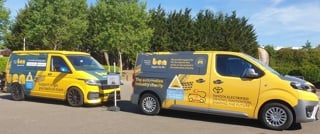
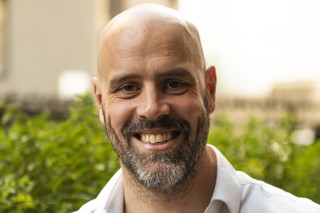
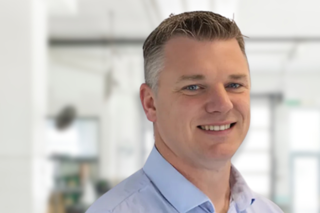
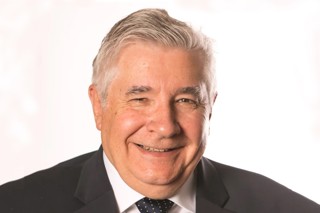
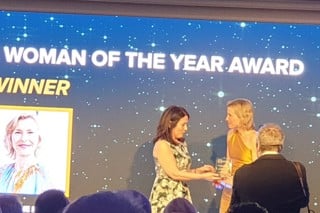












@P9uys - 06/07/2014 18:18
The William's prove there are Some nice guys in this industry.